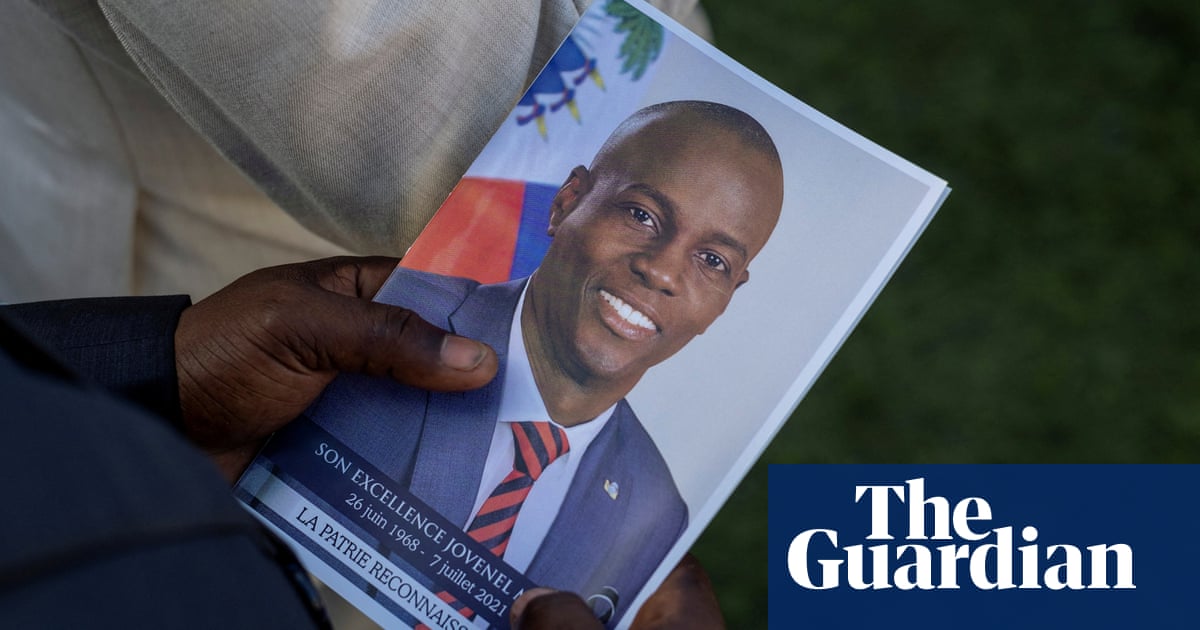
Senior Conservatives have frantically distanced themselves from Donald Trump after four years of praising the US president as a close ally of Britain, including granting him a three-day state visit and as recently as a fortnight ago describing him as a great friend of the UK.
Labour accused the Conservative party of failing to call out Trump once it had become clear weeks ago he was refusing to accept the result of the presidential elections. It also accused senior Tories of years of fawning over a known populist who insulted his allies, peddled conspiracy theories and, by treating authoritarians as his natural allies, undermined democracy everywhere.
Labour pointed to interviews in which Boris Johnson said Trump was as worthy of the Nobel peace prize as Barack Obama and described him as a standard New York liberal. In 2018 Johnson said: “I am increasingly admiring of Donald Trump. I have become more and more convinced that there is method in his madness.” Photos of Michael Gove, the now Cabinet Office minister and prominent Brexit campaigner, grinning thumbs-up alongside the president caught the initial mood.
But in a tweet on Wednesday night Johnson, described as Britain’s Trump by Trump himself, tweeted: “Disgraceful scenes in U.S. Congress. The United States stands for democracy around the world and it is now vital that there should be an orderly and peaceful transfer of power.”
His remarks, avoiding direct criticism of Trump’s role in inciting the violence, prompted a scathing response from the former shadow foreign secretary Emily Thornberry, who tweeted: “That’s it? Not a word of direct criticism of Trump. No condemnation of the incitement. No recognition that this is the culmination of 4 yrs of division, lies and contempt. 4 yrs when our own Britain Trump (as the President called him) has behaved like a shameful sycophant.”
Thornberry spent two years as shadow foreign secretary challenging Johnson over his closeness to Trump, warning him that he was making a strategic error that would ultimately backfire. Soon after the election results started to be dismissed as fraudulent by Trump, Thornberry urged the government to be more direct in its condemnation.
Perhaps stung by the criticism, Johnson finally went further at his Downing Street late afternoon press conference when directly confronted about the issue. He said: “In so far as he encouraged people to storm the Capitol and in so far as the president has consistently cast doubt on the free and fair election, I think that what the president has been saying on that is completely wrong. I unreservedly condemn encouraging people to behave in the disgraceful way as they did in the Capitol.”
Until then the clearest denunciation had come from the former foreign secretary Jeremy Hunt, who said: “America is the world’s biggest, most important democracy, a shining light on the hill for freedom. President Trump told a crowd to march on Capitol Hill & turned on his vice-president for upholding the law. He shames American democracy tonight & causes its friends anguish but he is not America.”
Hunt has been joined by other former foreign office ministers who believe Trump needs to be removed from the presidency immediately. The defence select committee chairman, Tobias Ellwood, accused Trump of “undermining democracy, inciting violence, fuelling division & damaging what the nation stands for & believes in. Why say this? He has 2 weeks left & will not go quietly.”
Alistair Burt, another former foreign office minister, also called for Trump’s immediate removal from office. By contrast, his successor, James Cleverly, constrained by office, spoke of his distress at the scenes in Washington as if the capital had been hit by a natural disaster.
The overall UK government strategy all along has been that it would be suicidal to fall out with Trump, and by influencing those around him, such as his son-in-law Jared Kushner, British interests – including a potential free trade deal – could be protected post-Brexit.
In the process, Britain absorbed frequent humiliations, including being ignored on key diplomatic moves such as the withdrawal of US troops from north-east Syria, the US withdrawal from the Iran deal, bullying over Huawei’s role in 5G and public criticism of Theresa May’s Brexit strategy.
It was symptomatic of the relationship, and a cause of distress to many in the Foreign Office when Johnson failed to stand by the former British ambassador to Washington Kim Darroch after cables critical of Trump’s personality were leaked. The documents, written in 2017, rightly predicted the Trump administration would not become less dysfunctional, less unpredictable, less faction riven, less diplomatically clumsy and inept.
Much of this tolerance was due to Brexiteers seeing Trump’s and their own rise stemming from the same ideological well. Jacob Rees-Mogg wrote in the Times in 2018 ahead of one of Trump’s visits: “It is our national good fortune that the president with whom we will develop this new arrangement is Mr Trump. His election depended upon similar factors to those that led to Brexit. He appealed to voters left behind by the metropolitan elite and he exudes confidence about his own nation and a determination not to be a manager of decline, which also inspires the Brexiteers.” Britain, he said, quoting the former prime minister Harold Macmillan, could play the role of Greeks to the Americans’ Romans.












